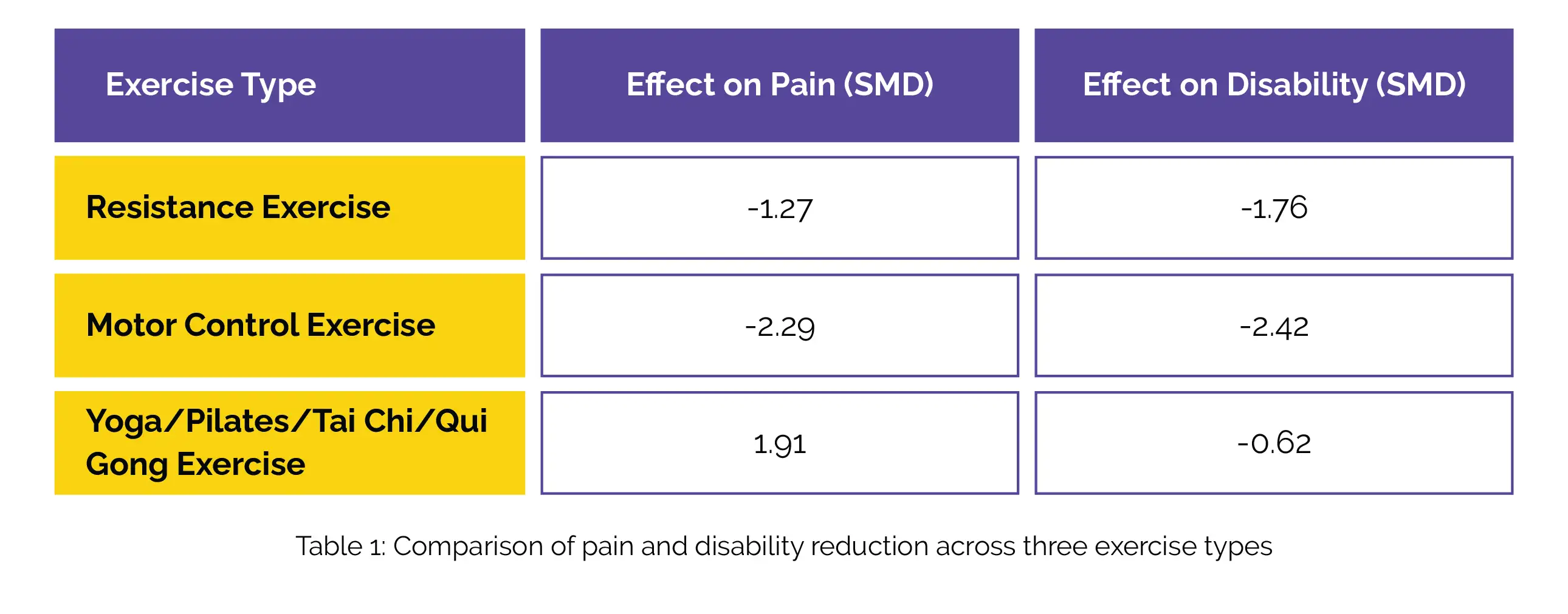Categories
Change Password!
Reset Password!


For the management of chronic non-specific neck pain, motor control, mindfulness-based, and resistance exercises are highly effective strategies.
A systematic review with meta-analysis and dose-response meta-regression depicted that motor control, mindfulness-based, and resistance exercises effectively reduce neck pain and disability. Longer and more frequent motor control sessions have a significant pain-reducing effect. Juliane Mueller et al. aimed to investigate the dose-response relationship and impact of various exercises in people grappling with chronic neck discomfort.
For relevant literature searches, databases such as CENTRAL, PEDro, and PubMed were explored. Randomized controlled trials were incorporated involving individuals with chronic neck pain who underwent longitudinal exercise interventions with at least one pain and/or disability outcome assessment. Distinct restricted maximum-likelihood random-effects meta-analyses were conducted for resistance, mindfulness-based, and motor control exercises. The effect estimators employed in these analyses were standardized mean differences (Hedge's g, also known as standardized mean difference [SMD]).
Furthermore, meta-regressions were carried out to determine the dose-response relationship for the effectiveness of each exercise type, using effect sizes of the interventions as the dependent variable and training dose and control group effects as independent variables. A total of 68 trials were included in the assessment. Resistance exercise, motor control exercise, and Yoga/Pilates/Tai Chi/Qui Gong exercise were found to have significantly larger effects on pain and disability compared to the true control, as depicted in Table 1:

Yoga/Pilates/Tai Chi/Qui Gong exercise was particularly more effective than other exercises (SMD: −0.84) in reducing pain, while motor control exercise showed superiority (SMD: −0.70) for disability reduction. For resistance exercise, no dose-response relationship was observed (R2 = 0.32). However, longer durations (estimate = −0.11) and greater frequencies (estimate = −0.10) of motor control exercise had a greater impact on pain (R2 = 0.72), and longer sessions (estimate = −0.13) of motor control exercise had larger effects on disability (R2 = 0.61).
Thus, resistance, mindfulness-based, and motor control exercises were promising in diminishing neck pain, with longer and more frequent motor control sessions showing a significant pain-relieving effect. Further research is needed for optimal dosage.
Journal of Orthopaedic & Sports Physical Therapy
Resistance, motor control and mindfulness-based exercises are effective for treating chronic non-specific neck pain: A systematic review with meta-analysis and dose-response meta-regression
Juliane Mueller et al.
Comments (0)